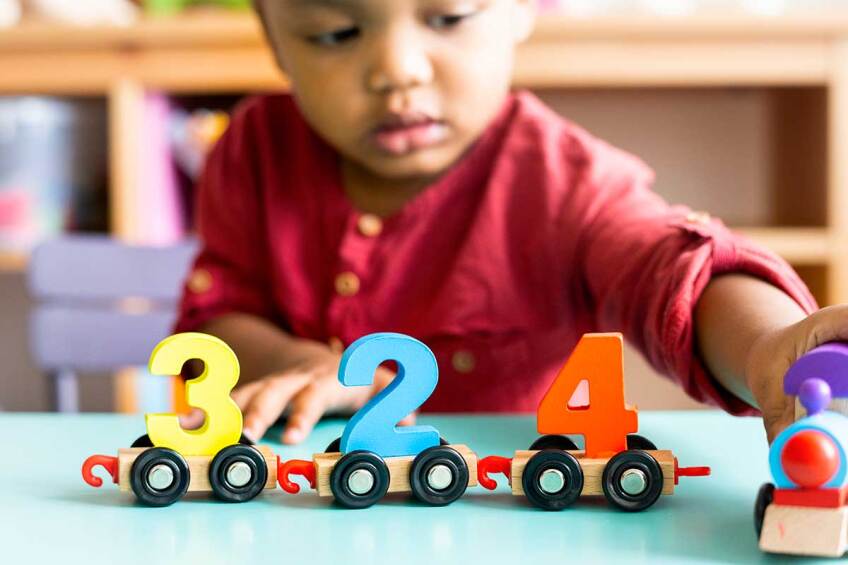Family Math Vision and Mission

Early math skills can unlock powerful opportunities for children. Research has identified how math proficiency at age 5 predicts academic achievement throughout elementary school, graduation from high school, and enrollment in college. There is widespread recognition that deep family engagement decreases the kindergarten readiness gap between children from middle and lower-income families. However, family engagement programs often do not take into account the lived experience of families, which include understanding the barriers that prevent families from being able to fully take part in programs or support their children’s learning at home. Instead of telling parents what they should be doing or taking a deficit perspective in which we criticize their existing practices, we embrace the diverse perspectives of Compton parents.
Our mission was to design a parent engagement model that is born out of the needs and desires that parents express in regards to what resources they would like to have in order to better support their child’s math learning. Through partnerships with the Compton community, PBS SoCal developed the Compton Family Math Initiative to cultivate and empower parents, more fully integrate caregivers into their children’s learning community, and increase child and family math positivity by offering fun learning opportunities and engaging digital experiences. Utilizing a human-centered design approach, PBS SoCal sought to understand and address the needs of parents and communities to inform the development of a replicable parent engagement model and Family Math curriculum.
Through a series of Family Math Introductory Workshops, Parent Academies, and Family & Community Learning Workshops, we are reaching out to families — particularly parents and caregivers — and offering insights, tools, and support so that they can confidently, joyfully, and authentically explore math with their children. As the entry point for potential parent leaders of the Family Math Initiative, Introductory Workshops provide parents with access to resources to immediately engage in at-home learning around math concepts. Caregivers become empowered to take the next steps in developing their own skills in math and their confidence in their ability to help their children. Each workshop features a single math concept identified by Common Core Standards as an important skill to have in kindergarten. Every family receives a curated backpack including a thematic book, at-home activities, and links to digital resources.
Below we offer an insight into our Family Math vision driving our content, resource creation and outreach.
Purpose
To improve meaningful outcomes for children and communities by leveraging the power of early math skills and unlocking the potential of family engagement.
Mission
To facilitate young children’s and families’ development of math knowledge, math interest, math positivity, and leadership skills by supporting family engagement around math in both at-home and out-of-home settings.
Vision
We envision…
Flourishing families that can recognize the rich educational implications of their everyday practices, support their children’s playful, authentic learning, and build community partnerships so that we all may thrive in a world where there is equitable access and proportionate outcomes around school achievement and STEM career participation.
Values
Respect: We view communities’ assets and families’ capacities from a strengths-based and diversity/equity lens, honoring lived experience and cultural, traditional, environmental, and intergenerational knowledge just as highly as the academic knowledge recognized by the formal education system.
Accessibility: We craft authentic, developmentally appropriate, culturally competent explorations of everyday math around which families with young children can engage.
Capacity-building: We design programs that support leadership development, empowering families to teach their children, shape this program, outreach to neighbors, partner with schools and out-of-school programs, and advocate for what they need.
Fun: Because learning through play is the best way to reach young children, we offer hands-on experimentation, fun games, engaging characters, and humor/silliness so that learning experiences cultivate content knowledge as well as joy, knowledge, relationships, and self-efficacy.